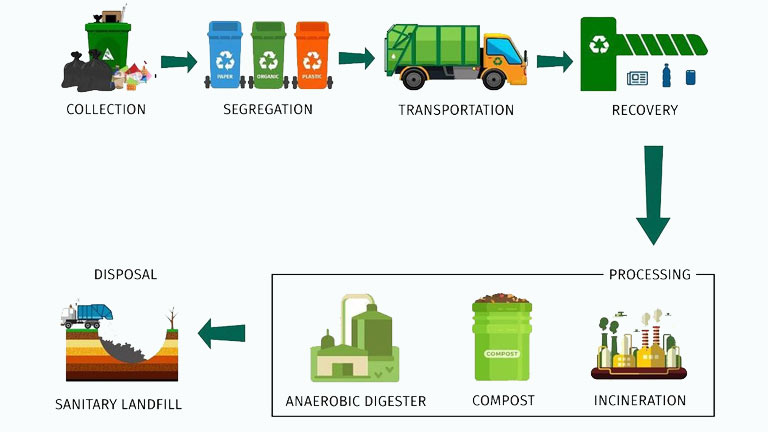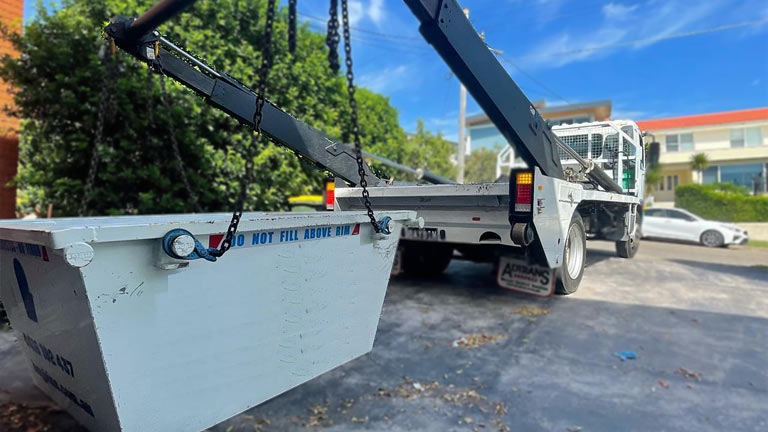
People through garbage and household waste themself on the dumping ground in rural areas. However, people require waste management and transportation services in urban areas. Humans started producing more waste and garbage than before due to modern lifestyles and bad habits. Most waste and garbage come from food products, ducts, and plastic.
Garbage and household waste types
- Organic waste: This includes food scraps, fruit peels, vegetable trimmings, and coffee grounds.
- Plastic waste: Examples of plastic waste include bottles, bags, packaging materials, and disposable utensils.
- Paper waste: Paper waste consists of newspapers, magazines, cardboard boxes, office paper, and packaging materials made of paper.
- Glass waste: Glass waste comprises bottles, jars, and broken glass items like windows or mirrors.
- Metal waste: This category includes aluminum cans, steel cans, tin foil, and scrap metal items.
- Electronic waste: E-waste refers to discarded electronic devices such as computers, televisions, smartphones, and appliances.
- Hazardous waste: Hazardous waste includes items like batteries, fluorescent light bulbs, pesticides, and chemical cleaners.
- Textile waste: This category includes old clothes, fabric scraps, and worn-out household textiles.
- Medical waste: Medical waste consists of items like used syringes, bandages, expired medications, and biological waste from healthcare facilities.
- Bulky waste: Bulky waste includes large items such as furniture, mattresses, appliances, and electronics that are too big for regular trash bins.
Solid Waste Management and Transportation
When we produce solid waste then we also need to store, lift, and transport it from our homes to dumping ground and incineration. First, most people through the waste in bins and put it in the trash or storage units, transportation vehicles come to collect it, and last, disposal treatment.
Bin
Having a home bin provides numerous benefits for waste management. It allows convenient disposal of various waste types, including recyclables, general waste, and organic waste. Using separate compartments within the bin promotes proper waste segregation, reducing landfill waste and facilitating recycling efforts. Ultimately, the home bin helps maintain a clean and sustainable living environment.
Trash
Having a home trash system offers several benefits for waste management. It allows for convenient and hygienic disposal of various types of waste generated in the household. Properly managing home trash promotes cleanliness, minimizes odor, and reduces the risk of pests. It also contributes to maintaining a healthy and pleasant living environment for residents.
Storage units
Home storage units provide numerous benefits for homeowners. They help maximize living space by offering additional storage options for belongings, reducing clutter, and promoting organization. These units allow for better accessibility and protect items from damage or loss. Ultimately, home storage units contribute to a more efficient and comfortable living environment.
Collection and Transportation
Collection and transportation are two important steps in waste management. They involve the collection of waste from its source and its transportation to a treatment or disposal facility. The methods used for collection and transportation vary depending on the type of waste, the distance it needs to be transported, and the environmental regulations in place. The type of solid waste transportation vehicle that is used will depend on the type of waste, the distance it needs to be transported, and the environmental regulations in place. Some of the solid waste management and transportation vehicles and units include dumpster rentals, refuse trucks, dumpers, compactors, and transfer trailers.
Disposal
Treatment, analysis, and disposal of waste are important steps in waste management. Waste can be treated in a variety of ways, including recycling, incineration, and landfilling. The type of treatment used will depend on the type of waste and the desired outcome. Waste can also be analyzed to identify its composition and to determine if it is hazardous. This information can be used to select the appropriate treatment method and to ensure that the waste is disposed of in a safe and environmentally responsible manner.




